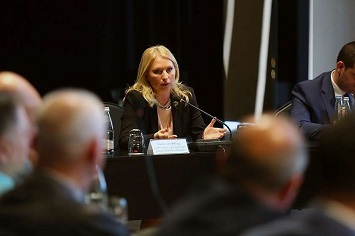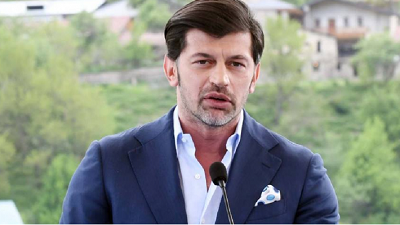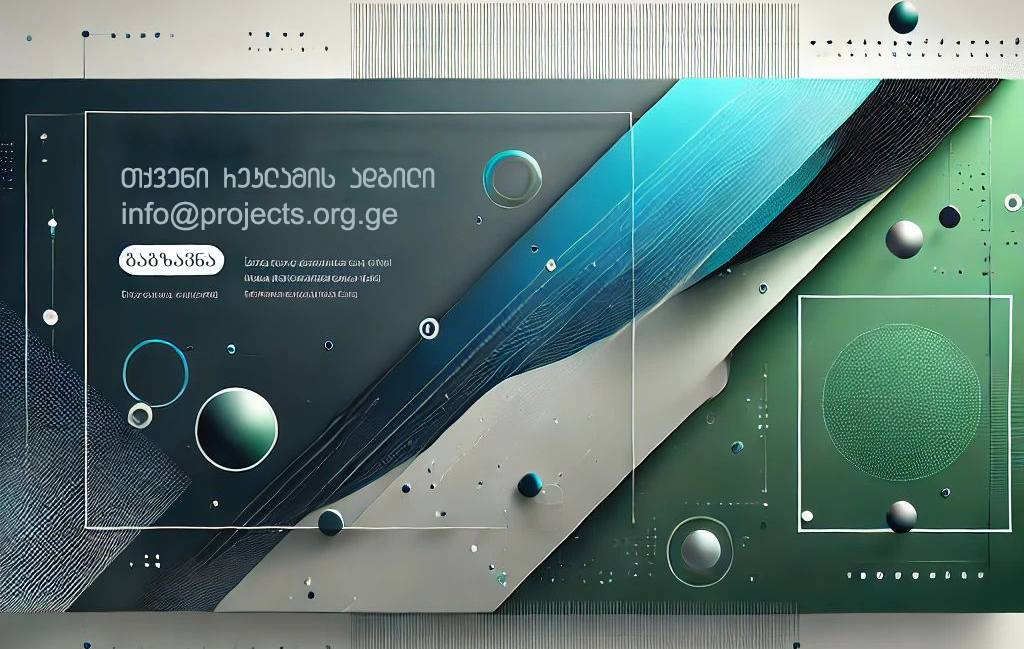|
| 1265 |
|---|
STUDY OF THE UNITED STATES SUMMER INSTITUTE FOR SCHOLARS
| 2024 Study of the United States Institute (SUSI) for Scholars
Please send your completed application, saved in Microsoft Word format, with a subject line “2024 SUSI for Scholars” by email to TbilisiExchanges@state.gov. Applications saved in PDF format will not be accepted. Application deadline: 30 November 2023 18:00 (local time) Program Overview Study of the U.S. Institutes for Scholars will take place at various colleges, universities, and academic institutions throughout the United States over the course of five to six weeks in summer 2024. Each Institute includes a four-week academic residency and up to two weeks for an integrated study tour in another region of the United States. Study of the U.S. Institutes for Scholars comprise the following themes in U.S. Studies: American Politics and Political Thought; Contemporary American Literature; Journalism and Media; U.S. Culture, Identity, and Society; U.S. Economics and Sustainable Development; and U.S. Foreign Policy. The website address http://exchanges.state.gov/susi Study of the U.S. Institutes for Scholars in the summer will be on the following themes in U.S. Studies:
Program Funding Through an award given to the University of Montana (UM), ECA will cover all participant costs, including program administration; travel allowances, domestic travel, and ground transportation; book, cultural, mailing and incidental allowances; and housing and subsistence; as well as arrange and pay for participants’ international and visa travel costs and travel allowances within set limits and in coordination with posts and Fulbright commissions. If the program is conducted virtually, ECA will work with UM to provide a technology stipend to all participants. Housing and Meal Arrangements When possible, each participant will have a private room with a shared bathroom during the residency portion (four weeks) of the Institute. However, private room accommodations are not guaranteed. During the study tour (up to two weeks), participants will likely share a hotel room with another participant of the same gender. During the residency, housing will typically be in college- or university-owned housing. Most meals will be provided at campus facilities, though participants may have access to a kitchen to cook some meals on their own. Please explain the above possible housing arrangements to your nominees to ensure that they are comfortable with such arrangements, particularly sharing a room with another participant during the study tour. All participants will be expected to respectfully share communal spaces and any necessary responsibilities. Travel Arrangements The implementing partner (UM) will arrange and pay for international and visa travel for all Institutes. The host institution will provide each participant with a small travel allowance. The host institutions will arrange and cover the cost of any program-related travel within the United States. Health Benefits All participants will receive the Department of State’s Accident and Sickness Program for Exchanges (ASPE) health benefit during the U.S.-based in-person component, which provides coverage of up to $100,000 with a $25 co-pay per medical visit and a $75 co-pay per emergency room visit, for the duration of the program. Pre-existing conditions may be covered up to $100,000 subject to policy exclusions and limitations. Information on the health benefit program may be found online at https://www.sevencorners.com/gov/usdos . Virtual Program Contingency Should health, safety, and travel conditions pose significant challenges to the program, SUSIs will pivot to a virtual format. The virtual program would consist of at least 36 hours of required programming and include both synchronous and asynchronous learning. Virtual programming may include lectures, small group discussions, videos, readings, panels, individual assignments, and group activities. Participants would be required to fully participate in the entire virtual program from their location. Connectivity Participants should have access to a computer and a stable internet connection for virtual pre-departure orientation sessions. If a participant does not have adequate computer or internet access, UM will work with the participant to facilitate access on an as-needed basis. Program Requirements and Restrictions All participants are expected to participate fully in the program. Candidates should be made aware that they are applying for an intensive program and there will be little time for personal pursuits unrelated to the program. The Institute is not a research program. Participants must attend all lectures and organized activities and complete assigned readings. Family members and/or friends may not accompany participants on any part of the program. If the program is conducted virtually, the same participation requirements apply. Note that Institute curriculum will not formally address teaching methodology and pedagogical methods. Candidate Qualifications Candidates should be mid-career, typically between the ages of 30-50, highly motivated, experienced scholars and professionals from institutions of higher education or research-focused organizations (not-for-profits, think tanks, etc.). While the education level of participants will likely vary, most should have graduate degrees and substantial knowledge of the thematic area of the Institute or a related field. Ideal candidates come from home institutions seeking to introduce aspects of U.S. studies into its curricula, to develop new courses in the Institute subject, to enhance and update existing courses on the United States, or to offer specialized seminars/workshops for professionals in U.S. studies areas related to the program theme. While the nominee’s scholarly and professional credentials are an important consideration, the potential impact and multiplier effect from their participation in the Institute is equally important. Ideal candidates will have little or no prior experience living in or visiting the United States. Candidates must demonstrate English language fluency. Institutes are rigorous and demanding academic programs conducted entirely in English. Participants will be expected to read and comprehend substantial written materials and assignments in English and to fully and actively participate in all seminar and panel discussions. Frequently Asked Questions: What degree of English proficiency should a nominee have? All participants must be fully proficient in English. They will need to fully understand lectures, actively participate in discussions, and read and write assignments in English throughout the Institute. To what extent do the SUSIs for Secondary Educators cover teaching methods and pedagogy? SUSIs for Secondary Educators focus primarily on content, materials, and education related to the United States. The Institutes for teachers typically include a handful of sessions on teaching methodologies. However, these sessions are supplemental to the main focus of the Institute. Teachers more interested in teaching methods and pedagogy rather than U.S. content may wish to apply for the Teaching Excellence in Achievement (TEA) program or the International Leaders in Education Program (ILEP). Can a nominee who is a dual citizen of the United States and country of origin participate in Study of the U.S. Institutes? No. U.S. citizens and permanent residents (green card holders) are NOT eligible to participate in this program. A nominee has been to the United States before. Are they eligible to be nominated for Study of the U.S. Institutes? Yes. Nominees with minimal experience in the United States may be considered for the program. However, priority will be given to nominees with no previous experience in the United States. If you find it necessary to nominate a candidate with previous U.S. experience, please clearly indicate the purpose of the nominee’s visit to the United States, the year, and the length of their stay as requested on the nomination form. Can family members of U.S. government and Fulbright commission employees apply for the program? No. Nominees who are employees or immediate family members of employees of the U.S. Government (including a U.S. Embassy or Consulate, USAID, or other U.S. Government entity) or Fulbright commissions are ineligible. How much free time will a participant have during the program? There will be some free time during the program. However, nominees MUST understand that this is an intensive academic program and they are expected to fully participate in all lectures, activities, site visits, and scheduled events. Will participants have time to visit relatives or friends that may live in the United States during the program? Participants will NOT be allowed to leave the Institute to visit relatives or friends. Occasionally it is possible for a relative or friend to visit the participant on a specific day designated during the Institute, if the schedule permits. These situations will be considered on a case-by-case basis in consultation with the ECA program officer and the implementing partners. Can a participant of the SUSIs for Student Leaders arrive early or stay in the U.S. after the Institute? No. Participants who choose to travel to the United States on a Study of the U.S. Institute for Student Leaders are required to abide by the terms and conditions of the program. These terms state clearly that Student Leaders may NOT arrive in the United States before the program start date or remain in the country after the close of the Institute. Can a graduate student participate in a SUSI for Student Leaders Institute? No. Study of the U.S. Institutes for Student Leaders are designed exclusively for undergraduate students with at least one remaining semester of study following the program. Can a participant miss one part or component of the Institute? All participants are expected to participate in all scheduled lectures, events, site visits, trips, and activities. How much money will participants need to bring for the program? The Study of the U.S. Institutes cover all basic costs of an individual’s participation including transportation, lodging, and meals. Generally, the Institutes provide meals through a combination of a cafeteria meal plan, a pre-loaded debit card for use at local restaurants, and/or a cash allowance for participants to purchase food for cooking. Information on housing and meal arrangements will be provided by the implementing approximately six weeks prior to the start of the Institute. Other than the meal stipend mentioned above, participants should not expect to receive any spending money from the Institute. Participants should bring their own spending money if they wish to purchase souvenirs or other items during their time in the United States. Are you able to fully accommodate participants with disabilities? The Study of the U.S. Branch welcomes nominations for individuals with disabilities. We are committed to working with our partners to arrange reasonable accommodations for all participants. We ask that you identify disabilities during the nomination process so that we can begin working with our partners to ensure appropriate accommodations.
წყარო: U.S. EMBASSY IN GEORGIA
|

20-10-2023
წყარო: U.S. EMBASSY IN GEORGIA
|
25-06-2019 შალვა ალავერდაშვილი - ბაქოდან, ერევნიდან და ტრაპიზონიდან უფასო ე.წ. შატლები უნდა დავნიშნოთ, რომლითაც საქართველოში რუსი ტურისტები მარტივად შემოვლენ |
|---|
|
20-10-2023 2024-2025 FULBRIGHT VISITING SCHOLAR PROGRAM |
|
10-05-2019 ეკონომიკის მინისტრი: ლარის კურსის გაუფასურება მოკლევადიანი რყევაა |
|
22-03-2019 ავარიული სახლებისა და დაუსრულებელი მშენებლობების ჩანაცვლების შემთხვევაში, შენობების სიმაღლის მატება შესაძლებელი იქნება |





